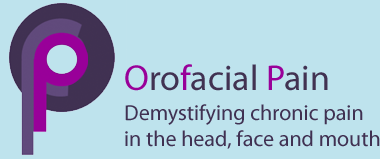By Georgina Gray
Good quality sleep is one of our core health pillars. Not only is it vital for energy, mental health and hormone production, it is also important for disease prevention and weight control. We should be aiming for 7-9 hours of good quality sleep every night, for optimal health and longevity. Yet one in three of us regularly have problems sleeping. Here are our top tips to improve the quality and quantity of your sleep.
Manage your light exposure
Increase your daylight exposure, ideally exposing your face to the outdoors (come rain or shine!) by 10 am each morning. A lunchtime or sunset walk can also be helpful.
In the evening, be sure to dim your lights and try not to use bright ceiling lights. Using side lamps, firelight, and candlelight will help your body to produce melatonin (our sleep hormone).
Reduce your evening exposure to blue light – ideally avoiding all technology 2 hours before bed.
Balance your blood sugars
Ensure you are eating adequate protein, healthy fats and vegetables at every meal to keep your blood sugars stable overnight. Protein sources include meat, fish, eggs, tofu and pulses. Healthy fats can be found in olive oil, avocado, nuts, seeds and oily fish.
Eat foods that help you sleep
To produce Melatonin (our sleep hormone), we need Serotonin (our happy hormone), which is from an amino acid called Tryptophan. Therefore, consuming foods rich in tryptophan two hours before going to bed may be helpful in promoting sleep. High tryptophan foods include poultry (turkey & chicken), fish (salmon & cod), dairy products (milk & cheese), eggs, spinach, nuts and seeds (pumpkin/sesame/sunflower seeds, almonds, cashews, peanut, walnuts), bananas, kiwis and oats.
You could try a tryptophan-rich bedtime smoothie to increase melatonin levels. Simply blend 1 ripe banana with 1 cup of unsweetened almond milk, 1 tbsp oats, 1 dessert spoon of nut butter and a sprinkle of cinnamon to taste.
Manage stress and anxiety
The links between stress and poor sleep are well known. Finding a relaxation outlet which you enjoy, such as yoga, meditation, singing, reading, walking or gardening, can support restful sleep by calming your nervous system. Journaling before bed can help to calm and clear the mind.
Unfortunately, stress can result in increased intake of caffeine, alcohol and sugar, which can further disrupt sleep. Try to opt for herbal tea’s and reduce overall sugar and alcohol intake.
If you struggle to drop off to sleep with a busy mind, boosting magnesium intake may help as it helps to calm the nervous system and promotes relaxation. Ensure your diet contains plenty of green leafy vegetables, almonds or cashew nuts, tofu, brown rice, and avocado to maintain magnesium levels.
You could also try adding magnesium bath salts to your bedtime bath – make sure you soak for at least 20 minutes to allow the magnesium to be absorbed.
A more personalised approach
If you have insomnia, or your poor sleep is not responding to these interventions, it might warrant considering some additional exploration. Here are a few avenues that might be considered, under the guidance of a qualified practitioner.
- Consider a DUTCH hormone test including Cortisol Awakening Response (CAR) to understand if adrenal or cortisol dysregulation is causing you to wake.
- Use a Continuous Blood Glucose monitor to understand your individual response to foods. Low night-time glucose can cause night-time waking.
- Research suggests that there may be a correlation between the presence of certain parasites in the gut, and insomnia. Considering a comprehensive stool test may be advisable in cases of insomnia where there are also gastrointestinal symptoms.
- A practitioner may also recommend specific supplements to support your personalised sleep needs and requirements.
If you would like to explore personalised help to get you sleeping deeply and waking up feeling full of energy, then book in for a free 30-minute discovery call here.


